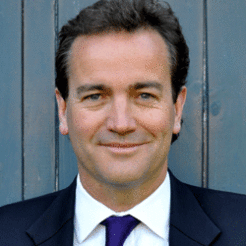The minister for civil society, Nick Hurd, has said he sees no current case for structural reform of fundraising self-regulation.
Speaking at the Public Fundraising Regulatory Association’s AGM in London yesterday, Hurd said he had been given lots of advice to introduce statutory regulation of street fundraising, but has always felt that was the wrong way to go.
He praised the PFRA for its response to concerns from politicians, the media and the public about the need to improve standards in street fundraising.
There is evidence that complaints about street fundraising are down and MPs are receiving fewer letters of concerns about the technique, he said.
“It’s in your hands,” he told the audience of representatives from charities and agencies that carry out face-to-face fundraising. “Otherwise there is government with a big stick and a successor of mine could feel pressure to wave it.”
The PFRA, the Fundraising Standards Board and the Institute of Fundraising have been working together to implement the recommendations in Lord Hodgson’s review of the Charities Act 2006 about the need to address the “confused landscape” of fundraising self-regulation.
The government has supported Hodgson's recommendation that the sector's progress is reviewed in 2017.
A report by the professional services firm PwC, which carried out a review of fundraising regulation on behalf of the three bodies, is due to be published soon.
Responding to a question from the audience about whether more changes to self-regulation could be a distraction from the work already being done to improve standards, Hurd said: “There are plenty of politicians that want to change the structures of self-regulation and that’s why it is important to see evidence that it is delivering results on the ground of improved standards and less complaints. That is all that matters really.
“I’ve always been keen to avoid big structural reform unless there is a case for doing that and I don’t see that case now.”
The AGM marked the signing of the PFRA’s 250th fundraising agreement with a local council, which set out details about where and when street fundraising can take place.
Hurd said examples like the agreement with Canterbury City Council showed other local authorities there is a solution to any problems they experience with street fundraising.
“If there is evidence it’s working then the political noise will go away,” he said, adding the caveat “in theory”.
Cllr Nick Worth, regulatory champion at the Local Government Association, also spoke at the event about the success of the LGA’s 2012 pledge to work wit the PFRA to promote site management agreements as the best way for councils to manage street fundraising.
“There has been a demonstrable impact on reducing residents’ concerns about chugging,” he said. “We welcome the emphasis on resolving the issues through self-regulation without government intervention that creates an additional burden for taxpayers.”









